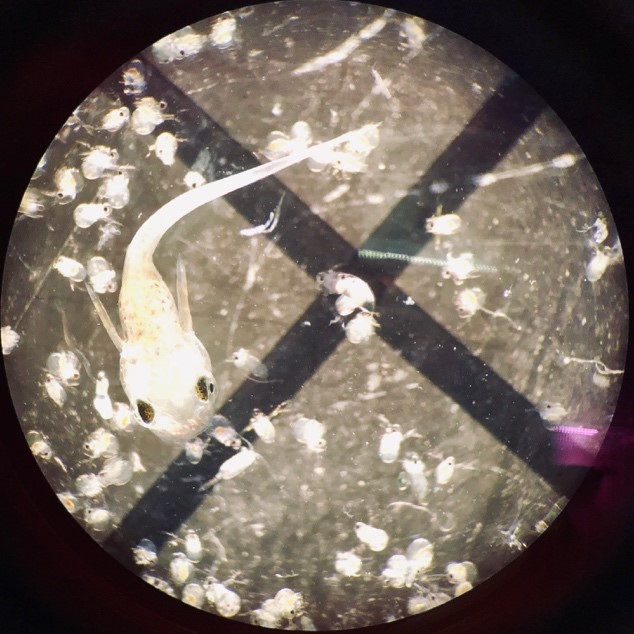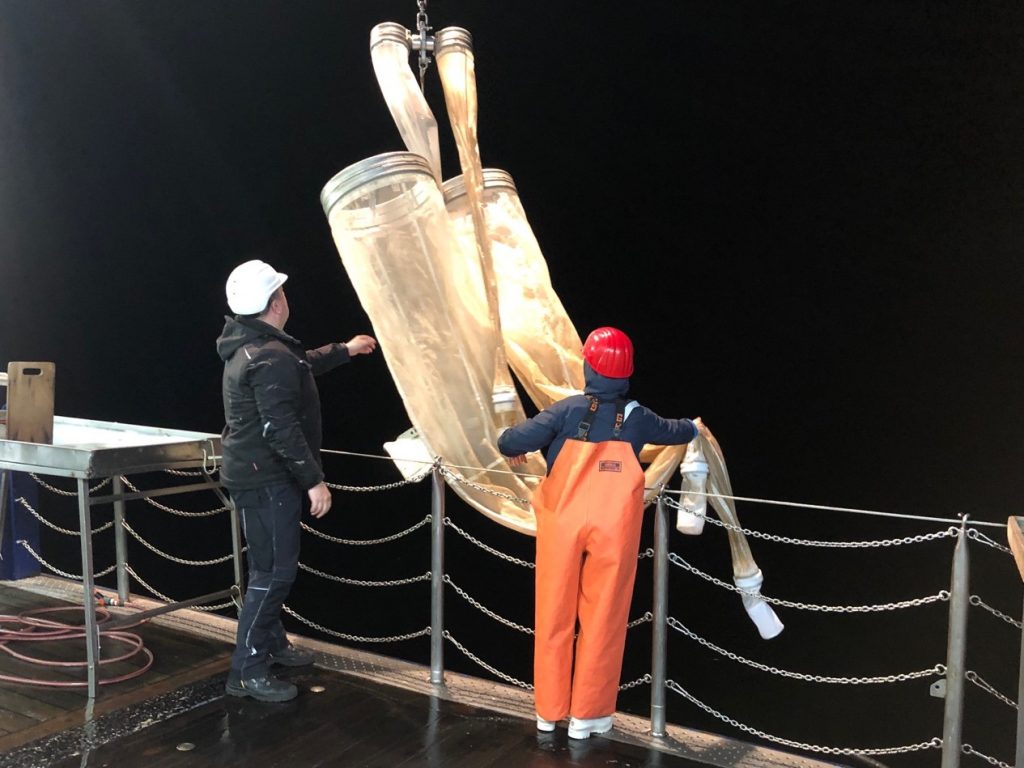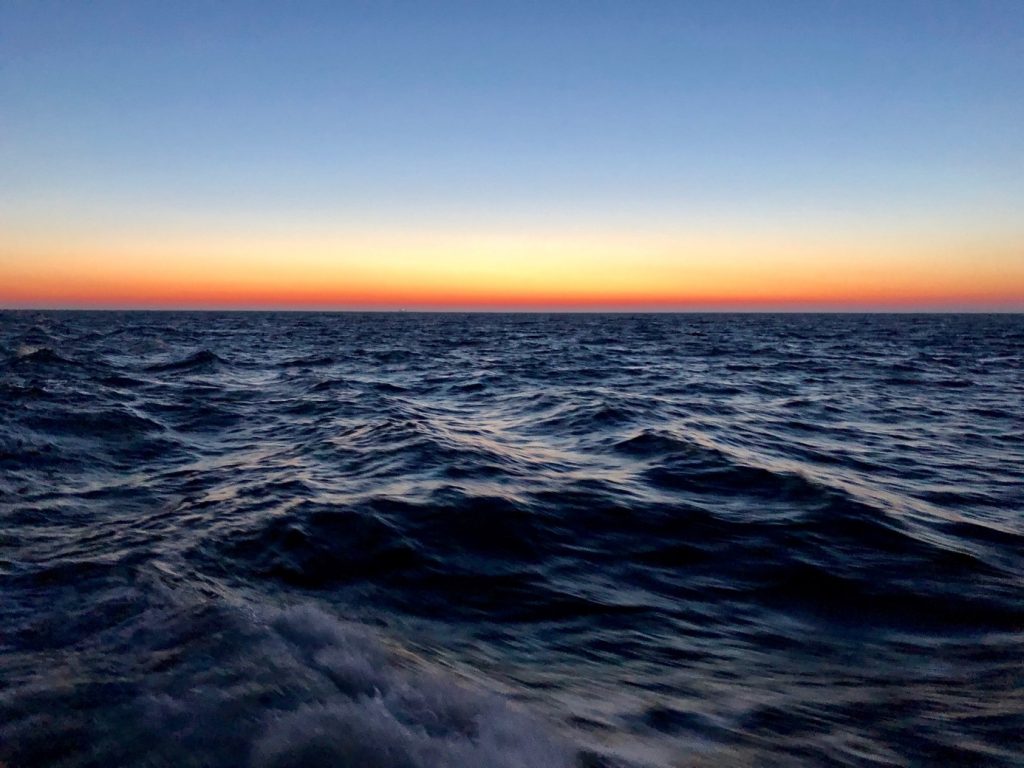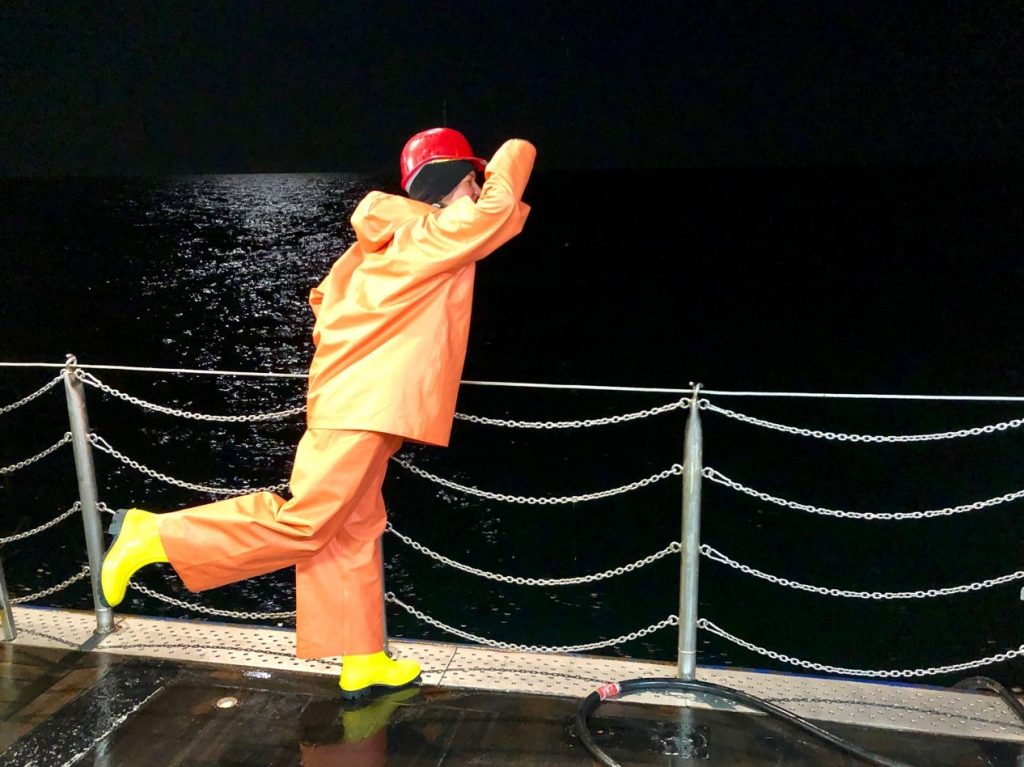Living and working on board the RV Alkor provides many opportunities to collect valuable data that helps us to understand what is happening in the Baltic Sea. Working as efficiently as possible during the limited time we have at sea means that we also have to work at night time – when all others are sleeping. While the day shift mainly focuses on fisheries, the night shift is all about plankton. Being on a cruise for the first time, we were a bit worried how it feels like to work at night and sleep during the day. But everybody told us it’s one of the nicest shifts, so we were very curious after all…

Right after dinner in the early evening it is time to head to bed so that we have a well-rested start into our shift which begins at exactly 00:00 every night. Together with an experienced scientist and 3 crew members, we steam from station to station (which takes around 45 minutes each time), measure water parameters with the CTD (a device that records conductivity, temperature and depth of the water) and then throw out the Bongo net. The Bongo net consists of 4 separate plankton nets mounted next to each other which allows us to collect samples of different sizes within a single tow: From a very small mesh size of 150 µm, up to a mesh size of 500 µm (= 0.5 mm). Depending on the depth of the water, the net takes between 5-10 minutes until it reaches the surface again. We then rinse it with water (always hoping to not get too wet…), unscrew the bottom part and empty the sample into small plastic bottles. Before the sample is conserved until further use, we pick out the fish larvae because they are particularly interesting for gaining insights into the early life stages of fishes in the Baltic Sea. We mostly find larvae of sprat (Sprattus sprattus) and flounder (Platichthys flesus) but once in a while we are also lucky to catch a small cod (Gadus morhua) or a seasnail (Liparis liparis).

Night shift is of course not all about working: In between the stations there is plenty of time to scavenge the pantry for a midnight snack (trust us, sandwiches are really delicious at 3 am in the morning), read books, have a chat with the crew or visit the captain on the bridge. Regular household tasks also don’t come up short because this is finally the time when nobody else is occupying the washing machine – but don’t step on the freshly mopped floor when sneaking into the laundry room! And if tiredness kicks in but nothing else helps to stay awake, there is always a soft bench to relax on in the dining room. Just never ever miss the captain’s “10 minutes to station” announcement!
At the end, the night always passes very quickly and after 6 hours of working in the darkness, the sun rises above the horizon to reward us with the most stunning view that we can ever experience while living at sea.

Greetings from on board Alkor,
Kim and Alba
